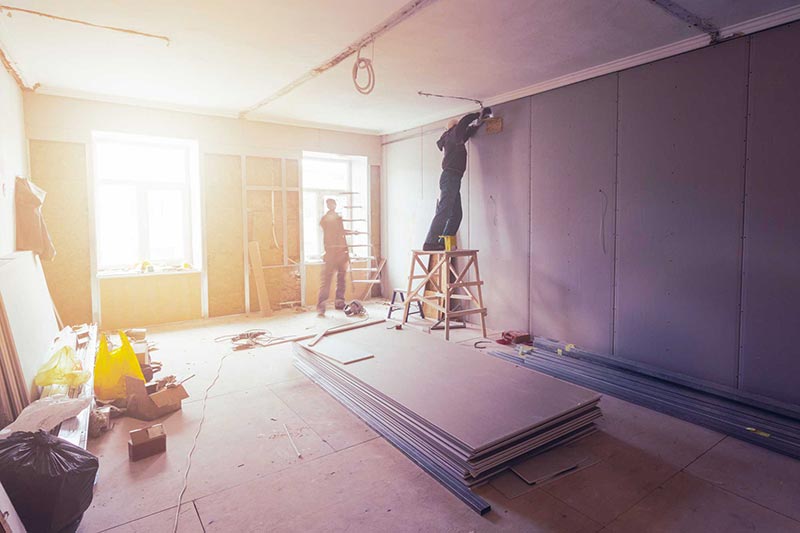
Home Inspection Objections: What You Need To Know
Inspection objections are common reasons buyers and sellers fall out of contract.
The best way to avoid prolonged negotiations or a dissolved contract is to familiarize yourself with the inspection process and specific objections unique to Colorado.
Colorado’s Inspection Process Explained
Once a contract has been signed, it’s the buyer’s responsibility to have the home inspected by a credible, third-party inspector before the inspection objection deadline. Failure to inspect before the deadline is the same as waiving this contingency.
Home inspections aren’t legally mandatory in Colorado. Most lenders require an inspection and the short-term costs (typically between $200 and $400) are well worth the investment.
During the inspection, the inspector will document and photograph any issues concerning the roof, exterior, interior, structural elements, plumbing, electrical, heating, and air conditioning. An inspection report is given to the homeowners to review.
There are other types of inspections: for example, radon (which is a mandatory test for all Colorado home transactions) is not performed during a traditional inspection. Radon, mold, and other types of inspections can be purchased at an extra cost. Lenders may also require other inspections, like a property survey, depending on the property.
Buyers should be aware that inspections are extremely thorough and often report inconsequential damage or normal wear and tear. The goal of an inspection is to provide information to the buyers so that they can make an informed home purchase.
The inspection objection is a list of repair requests made by the buyers and delivered to the sellers.
At this point, buyers and sellers negotiate what (if any) repairs will be made and who will pay for them. It’s common for sellers to cover costs, negotiate a substitute, or reject the request altogether.
Common Objections and How to Handle Them
Common objections in Colorado might include radon mitigation; water damage, mold, and mildew.
Radon Inspections
Radon is an odorless, colorless, and tasteless radioactive gas that can increase the risk of cancers. Radon is most prevalent in homes with basements. Radon can also be present in well water.
Radon levels in Colorado vary widely. For example, Denver County’s average radon level is 4.0 picocuries per liter (pCi/L) whereas Gilpin County’s average radon level is 9.8 pCi/L. The Environmental Protection Agency (EPA) recommends no more than 4.0 pCi/L to ensure occupant safety. If a home tests higher than this, the buyer and seller will need to negotiate a resolution.
In most cases, the cost of radon mitigation is comparative to other home repairs. The type of house and its foundation design ultimately determine the best mitigation technique (i.e., basement vs. slab-on-grade vs. crawlspace).
The most common mitigation method is a vent pipe system and fan. Other radon mitigations techniques might include subslab depressurization, sump-hole suction, crawl space encapsulation, sealing cracks or other foundational openings, room pressurization, etc.
Unless the buyer or seller is familiar with construction or renovation, the EPA recommends hiring a specialist to install a radon reduction system.
Water Damage
High annual precipitation in Colorado increases wear and tear on roofing, storm drains and gutters, landscaping, wood, and drywall. Home water damage can also result from old or leaky plumbing, leaky appliances, sewage backup, and other non-environmental factors.
An inspector will note any visible water damage in their report. Water damage is often a red flag to home buyers, but not all water damage should be a deal breaker.
If water damage is noted in the inspection, it’s best to determine how extensive and what cost the repairs will be—a water damage company will provide this estimate.
Denver and surrounding communities rely on companies like Professional Restoration to provide fair and accurate water damage assessment. Once the cost is evaluated, buyers and sellers can negotiate who will pay for the repair, or a new bid can be made to offset the additional cost of repairs.
If the home previously flooded, it may happen again. Buyers willing to repair water damage should talk to local insurance companies about flood insurance. In Colorado, for example, thousands of homes flooded in 2013 following significant rainfall. The Front Range, Boulder, Jefferson, Adams, Larimer, Broomfield, and several other counties were impacted—most didn’t have flood insurance because they were not in a traditional floodplain.
Mold & Mildew
If a home has water damage, there’s a good chance it may also have mold and mildew. However, mold and mildew can pose health concerns, even if water damage is minor.
A home inspector can only report on what’s visible, so it’s the buyer’s prerogative to have a potential home inspected for mold or mildew—this is highly recommended should the home have distinct water damage—a musky smell may signal an unseen problem.
Mold in most cases isn’t toxic, but there are millions of different strains. Some people are particularly susceptible to mold irritation, especially those with respiratory problems like asthma.
Buyers will need to contact a mold remediation specialist to obtain an estimate. Again, buyers and sellers will need to negotiate who will pay for mold remediation and/or what repairs will be made. Buyers may want to offset the cost with a new bid.
Home objections and resolutions don’t have to be a tedious affair. With open communication, reliable, third-party contractors, and help from professional realtors, objections can result in an equitable outcome for buyers and sellers alike.
For more reliable information about home inspections, water damage, and more, follow Professional Restoration on Twitter, or ‘like’ us on Facebook.

